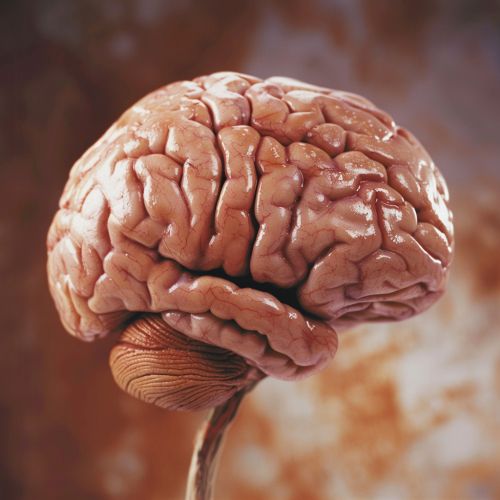Evolution of intelligence
Introduction
The evolution of intelligence is a complex and multifaceted topic that spans across various disciplines, including biology, anthropology, psychology, and neuroscience. Intelligence, in this context, refers to the ability of an organism to process information, learn from experiences, adapt to new situations, and solve problems. This article delves into the evolutionary origins and development of intelligence, examining the factors that have influenced its progression in different species, particularly humans.
Biological Foundations of Intelligence
Genetic Basis
The genetic basis of intelligence is a critical area of study in understanding its evolution. Intelligence is a heritable trait, with numerous genes contributing to cognitive abilities. Research in genomics has identified several genes associated with brain development and function, such as the ASPM and MCPH1 genes, which are linked to brain size and cognitive capabilities. The interplay between these genes and environmental factors shapes the cognitive abilities of an organism.
Neuroanatomy
The structure and function of the brain are central to the evolution of intelligence. The cerebral cortex, particularly the prefrontal cortex, plays a significant role in higher-order cognitive functions such as reasoning, planning, and problem-solving. Comparative studies of brain anatomy across species have shown that larger brain-to-body size ratios, or encephalization, are often associated with higher intelligence. For instance, humans have a highly developed neocortex, which is crucial for complex cognitive processes.


Neuroplasticity
Neuroplasticity, the brain's ability to reorganize itself by forming new neural connections, is a key factor in the evolution of intelligence. This adaptability allows organisms to learn from their environment and experiences, enhancing their cognitive abilities over time. Studies on synaptic plasticity and long-term potentiation have provided insights into the mechanisms underlying learning and memory, which are essential components of intelligence.
Evolutionary Pathways
Early Hominins
The evolution of intelligence in early hominins is marked by significant changes in brain size and structure. Fossil evidence indicates that early hominins, such as Australopithecus, had relatively small brains compared to modern humans. However, the genus Homo saw a rapid increase in brain size, particularly with species like Homo habilis and Homo erectus. This encephalization is believed to be linked to the development of more complex social structures, tool use, and environmental challenges.
Social and Environmental Pressures
Social and environmental pressures have played a crucial role in the evolution of intelligence. The social brain hypothesis posits that the complexities of social interactions and group living drove the expansion of the brain and cognitive abilities. Additionally, environmental challenges, such as finding food and avoiding predators, required advanced problem-solving skills and adaptability, further promoting the development of intelligence.
Cultural Evolution
Cultural evolution has also significantly influenced the development of intelligence. The transmission of knowledge, skills, and technologies across generations has led to cumulative cultural evolution, where each generation builds upon the achievements of the previous ones. This process has accelerated the development of cognitive abilities, as seen in the advancements in language, art, and technology.
Comparative Intelligence
Animal Intelligence
The study of animal intelligence provides valuable insights into the evolutionary origins of cognitive abilities. Various species exhibit remarkable cognitive skills, such as tool use in primates and birds, problem-solving in dolphins, and complex social behaviors in elephants. These examples highlight the diverse evolutionary pathways that have led to the development of intelligence across different taxa.
Human Intelligence
Human intelligence is characterized by its complexity and versatility. The development of language, abstract thinking, and self-awareness are hallmarks of human cognitive abilities. The theory of mind, the ability to attribute mental states to oneself and others, is a critical aspect of human intelligence that facilitates social interactions and empathy. Additionally, the capacity for cultural transmission and innovation has set humans apart from other species in terms of cognitive evolution.
Theories and Models
Evolutionary Psychology
Evolutionary psychology seeks to understand the origins of human behavior and cognition through the lens of evolution. This field posits that many cognitive traits are adaptations to ancestral environments. For example, the ability to recognize faces and interpret emotions may have evolved to enhance social cohesion and cooperation within groups.
Cognitive Neuroscience
Cognitive neuroscience explores the neural mechanisms underlying cognitive functions. Advances in neuroimaging techniques, such as functional MRI and PET scans, have allowed researchers to map brain activity associated with various cognitive tasks. These studies have provided insights into the neural basis of intelligence and its evolution.
Computational Models
Computational models of intelligence, such as artificial neural networks, offer a framework for understanding the principles of cognitive processes. These models simulate the functioning of the brain and provide a platform for testing hypotheses about the evolution of intelligence. By comparing artificial and biological systems, researchers can gain a deeper understanding of the underlying mechanisms of intelligence.
Future Directions
Genetic Engineering
Advances in genetic engineering, particularly CRISPR-Cas9 technology, hold the potential to enhance cognitive abilities by directly modifying genes associated with intelligence. While this field is still in its infancy, it raises ethical and philosophical questions about the future of human evolution and the potential for creating genetically enhanced individuals.
Artificial Intelligence
The development of artificial intelligence (AI) has profound implications for the study of intelligence. AI systems, particularly those based on machine learning and deep learning, can perform tasks that require human-like cognitive abilities. The interaction between biological and artificial intelligence may lead to new insights into the nature of cognition and its evolutionary origins.
Interdisciplinary Research
The evolution of intelligence is a multidisciplinary field that benefits from the integration of various scientific disciplines. Collaborative research efforts that combine insights from genetics, neuroscience, anthropology, psychology, and computer science are essential for advancing our understanding of intelligence and its evolutionary trajectory.
